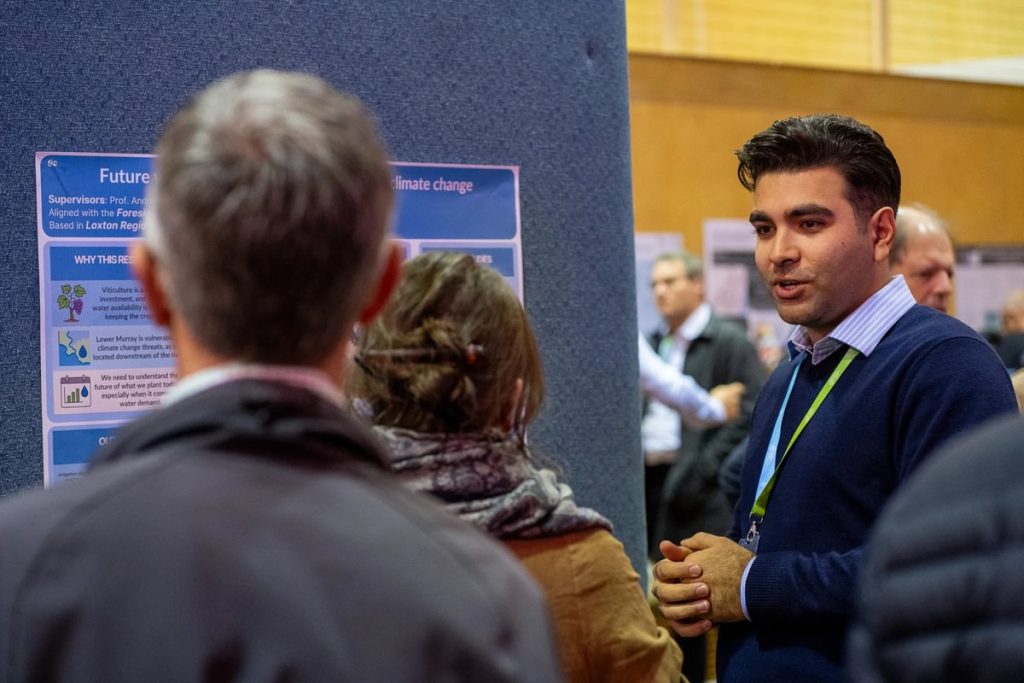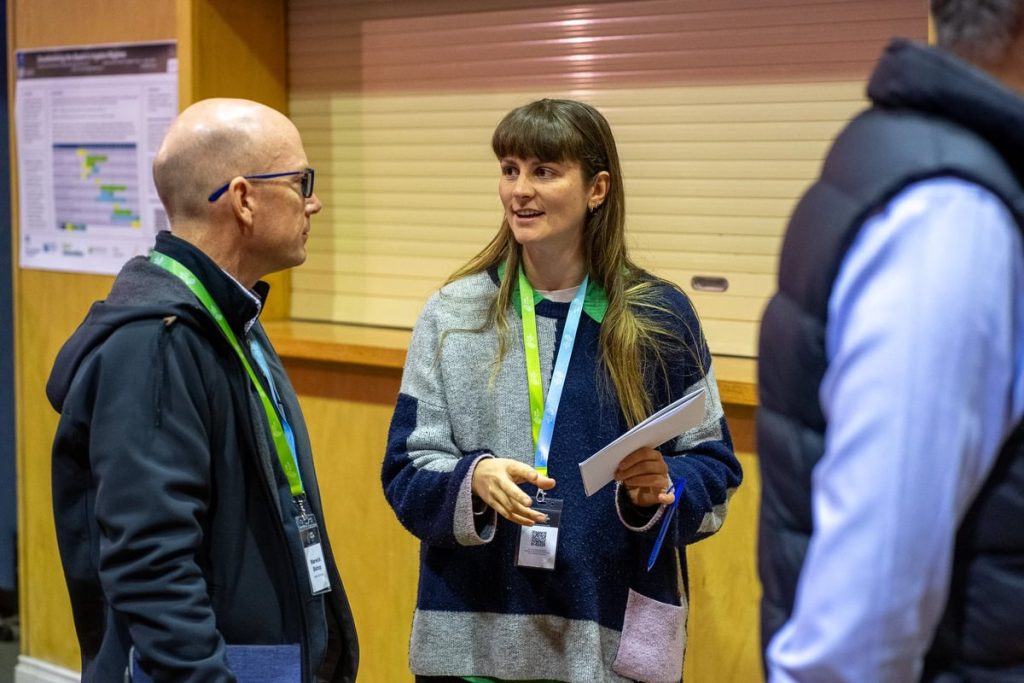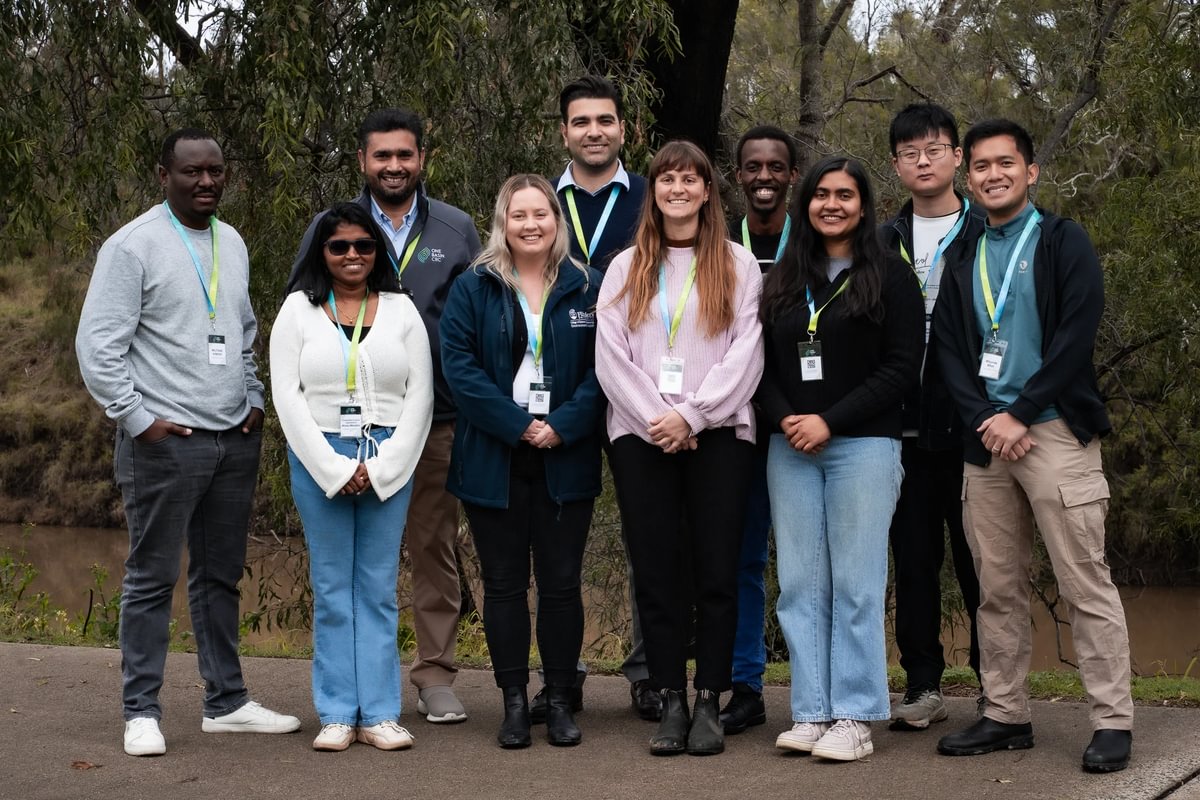Water, community, and change: stories from One Basin CRC’s next generation
news
Published 06 Oct 2025
Over our lifespan, One Basin CRC will support 50 PhD candidates to undertake research projects spanning hydrology, social research, economics, and more. These researchers represent the next generation of leaders in their fields, and of the Murray–Darling Basin.
Authored by esteemed writer and storyteller Ralph Johnstone, the following profiles are part of an ongoing series showcasing our PhDs and their stories.
Shahin Solgi: lessons from a drying world
For Shahin Solgi, wine may not have been on the menu when he came to Australia to study, but he has no misgivings about the importance of grapevines in a country that has made its name as one of the greatest wine producers in the world.
In an increasingly dry climate, and a ‘drying’ world that’s gradually eschewing alcohol, the challenges facing wine growers are not going away. This makes the subject of Shahin’s PhD – developing a reliable method to forecast climate change impacts on grapevine irrigation – not just a compelling research topic, but one that holds a key to one of the country’s most iconic industries.
Shahin’s story has captivated many members of One Basin CRC – notably at last year’s annual event, where he charmed participants with his self-effacing descriptions of life as “Loxton’s only Persian”. In the eight months since, he’s become a star student in the One Basin firmament, impressing his hosts, supervisors, and visiting researchers with his tenacious commitment to his study – and his new home.
“He has this openness and willingness to embrace new experiences,” says his supervisor at CSU’s Gulbali Institute, Professor Andrew Hall. “And he’s found the perfect host in [CRC hub manager] Kym Walton, who’s done so much to include him in social activities and make him feel at home.”

Shahin’s other breakthrough has been a part-time job with the South Australian Research and Development Institute (SARDI), co-housed with the CRC at the Loxton Research Centre. “It’s very useful for both of us,” he says. “I’m helping them take field measurements in almond orchards and vineyards, which has helped me learn about different measuring techniques, and I’ve also met many researchers, farmers and orchard owners – who’ll be really useful when I come to conduct my own research. Plus it’s a great experience to have before I start my own internship.”
Being based in a dry region with strong drought resilience, I’m learning things every day that directly inform my area of study. And with all the expertise at the research centre, I’m confident I’m going to be solving real-world problems – which is a feeling I don’t think I’d have if I was sitting in a lab or a library
Shahin Solgi
To learn more about Shahin’s project, visit the project page.
Kelsy Burns: seeing the story from all sides
When Kelsy Burns decided to work alongside a local landcare group fighting to save a damaged lake on the outskirts of Mildura, it was not merely to document the evolution of a collapsing wetland environment – or to unpack the activities of the group trying to revive it. For this deeply engaged PhD candidate, her trial of participatory action research (PAR) with Cabarita Community Inc. aims to discover whether an experiential community development approach can have practical benefits for the growing number of community groups trying to address deteriorating ecosystems across the Murray-Darling Basin.
For Kelsy, the use of PAR – in which community members become “co-researchers”, conducting the research alongside her – makes complete sense. “Our research will follow the ebb and flow of community actions to revitalise the lake, which receives some environmental water, but has been cut off from the natural flows of the River Murray since river regulation, creating an increasingly saline environment,” she explains.
“This means fish cannot survive and vegetation has deteriorated, which has had serious knock-on effects on activities like sailing, swimming, birdwatching, and fishing. There’s a strong belief for some in the community that the lake has the potential to return to its place as a social, recreational, and ecological hub.”
Kelsy hopes the PAR study will contribute to the group’s plan of action to support the lake’s revitalisation, which, while in the hands of her co-researchers, could explore different ways of engaging with government and water institutions, hosting public events, and campaigning for community and conservation support.

Being based at One Basin’s Mildura hub has been an incredibly positive experience for Kelsy, who cites the “phenomenal support” of the CRC and Mallee Regional Innovation Centre managers – which has also led to a two-day-a-week job at the Pistachio Growers Association. This “grounding” work has given her a unique perspective of the diverse experiences of farmers, irrigators, and communities when it comes to the realities of water buybacks and environmental releases.
“People in this community often wear many hats, so they can see many sides of the debate: the need for environmental water for conserving important ecosystems, the risks faced by irrigators and communities in an increasingly water-scarce world… Researching and working in community is very grounding, and you can develop an empathy for many sides of an equation. It’s really never a binary position when it comes to water – whatever some articles in the media would have you believe.”
There is no other professional experience that I’ve had that offers both the challenges and the privileges I’ve experienced studying a PhD
Kelsy Burns
Kelsy’s research is part of the Water Future research project – learn more on the project page.
Latest news & events
All news & eventsWebinar recording: Working With Country To Heal
Read MoreBuilding capacity for Basin communities to respond to variable water futures
Read MoreDelivering the Commonwealth Environmental Water Holder’s (CEWH) Flow-MER 2025 Annual Forum
Read MoreMurray Darling Association 2025 National Conference: Griffith drives Basin-wide water collaboration
Read More